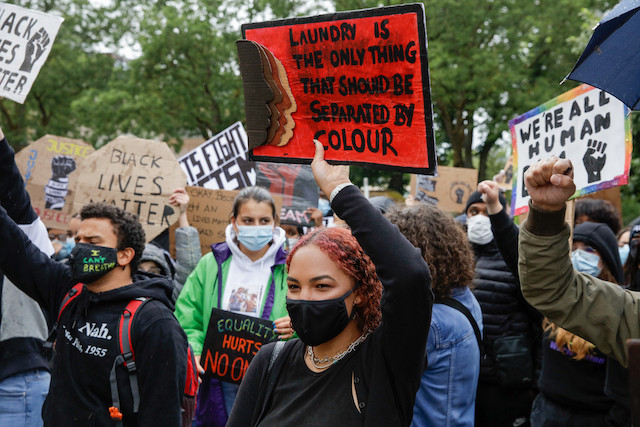The survey comes in the wake of last year’s Black Lives Matter protests, which had also reached the grand duchy and prompted a debate in parliament. Lawmakers had tasked the government with coming up with an action plan to combat racism and discrimination in schools, healthcare, employment, the police, social services the justice system and in political participation.
The family and integration ministry on 18 June announced that it would carry out a study with the help of the Luxembourg Institute of Socio-Economic Research (Liser) to better understand the phenomenon, which groups in society are most affected and how racism and discrimination manifest themselves in society.
The survey will be sent to 15,000 people aged 18 or over with residents selected at random although at-risk groups will be overrepresented in the study, a press release said. The survey will be available on French, German, Luxembourgish, English and Portuguese and will target foreigners and Luxembourg nationals alike.
Lawmakers last year had called for such a study to be carried out to better understand how minorities experience life in Luxembourg. The results should serve as the basis for an action plan that will outline more concrete measures.
The government in 2018 presented an integration plan that aims to help foreigners settle in the country and their communes. But this does not include any specific reference to minority groups and does not directly address the topic of racism.
Also in 2018, the “Being Black in the EU” report had shown that 50% of survey respondents in Luxembourg felt they had been discriminated against in the last 12 months. Ethnicity was the second-most common cause of discrimination listed by the Centre for Equal Treatment in its 2020 annual report. The most common cause was disability. The centre provides support and guidance for victims.
